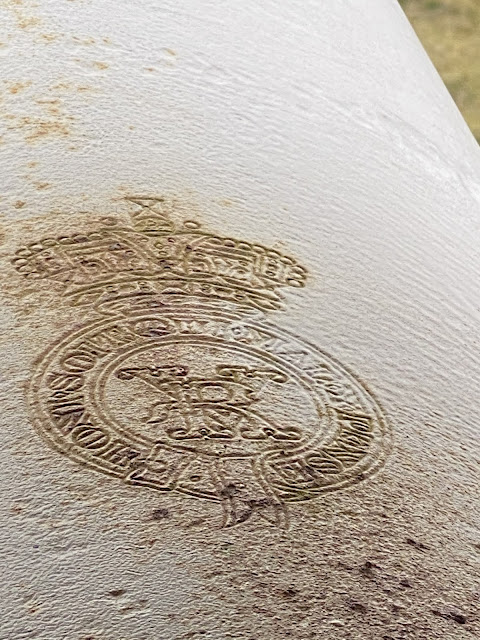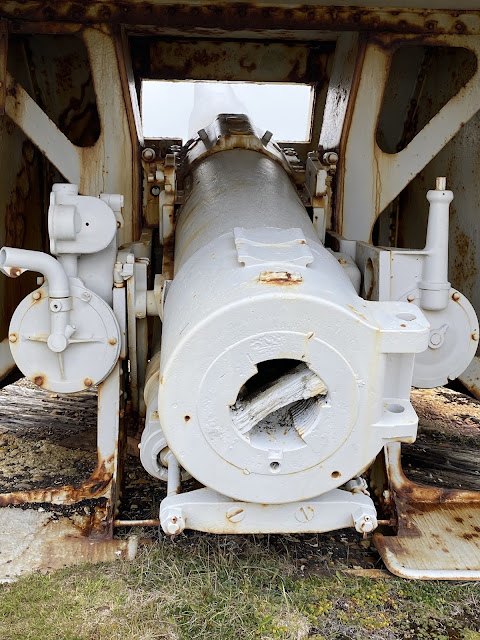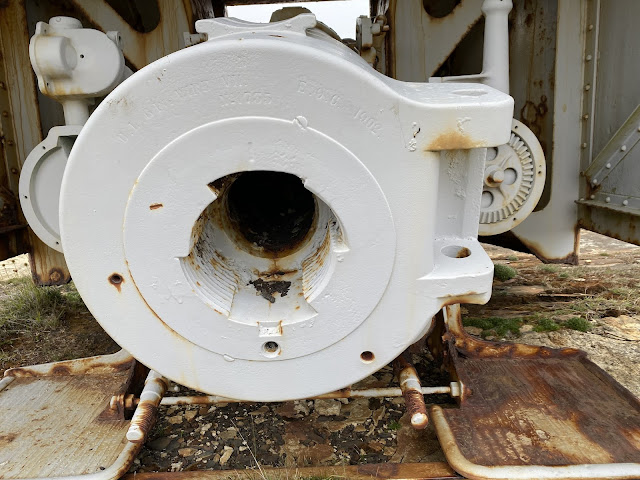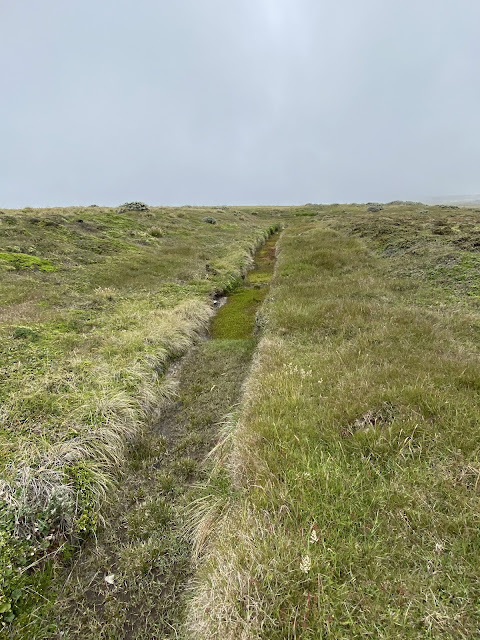Echoes of World War I - 31 December 2020 - No18
The Battle of the Falkland Islands was the first British naval victory of World War I. It was an encounter fought on 8 December 1914. It is widely celebrated on the Falkland Islands - no doubt helped by being a public holiday! This battle followed the first British naval defeat in more than a century at the less well known Battle of Coronel (off Chile) that had been fought on 1 November 1914.
 |
| Memorial to the battle of the Falkland Islands |
At Coronel the German East Asia Squadron comprising two modern armoured cruisers and three modern light cruisers under Admiral Von Spee had sunk HMS Good Hope and HMS Monmouth (both older armoured cruisers) for no losses of their own. HMS Glasgow (a modern light cruiser) and HMS Otranto (an armed merchantman) escaped.
HMS Canopus (a pre-dreadnought battleship) that had only be reprieved from the scrapyard by the outbreak of war had been sent to the South Atlantic - however it was only able to make 16 knots and could not keep up with the other British ships. After Coronel HMS Glasgow warned HMS Canopus who turned about and made its best speed (now down to 9 knots) towards the Falkland Islands. Twice during the voyage to the Falklands Canopus reported that she was not under control. HMS Glasgow and HMS Canopus reached Stanley, coaled and headed north - only for Canopus to break down again. She was then beached in Stanley harbour where it was felt its guns could serve as a defensive battery.
Churchill (as First Lord of the Admiralty) had to account for the defeat at Coronel to the House of Commons. He partly blamed the state and condition of Canopus for the defeat.
A task force set sail from Plymouth to reinforce the remaining British ships. On 7 December the battlecruisers HMS Invincible and Inflexible were at Stanley along with HMS Glasgow, HMS Bristol, HMS Cornwall and the armed merchantman Macedonia.
Von Spee had decided to raid the Falkland Islands having apparently received intelligence that there were no British warships present. There is some speculation that the Germans had been lured to the Falklands by a false radio signal sent by the British in the German naval cypher.
On 8 December the German fleet sailed round the south of the Falkland Islands. The wife of the Fitzroy sheep station was alerted to this by a telephone call from Stanley. She and her maids then took it in turns to ride to the top of nearby hills and then return to Fitzroy and report the progress of the German ships back to Stanley. [The irony is not lost on me that it was a call to Fitzroy from Goose Green the led, in 1982, to the ill fated sailings to Bluff Cove (near Fitzroy) by HMS Tristan and Galahad and the fact that the movement of these ships would have been evident to anyone stationed on the nearby hills.]
Notwithstanding the advance intelligence many of the British ships in and around Stanley were coaling when Von Spee's squadron were sighted. It is thought that Von Spee could have used this to his advantage - had his squadron not come under attack from the beached (and hidden) HMS Canopus. Canopus had been dis-masted so as not to be visible.
The battle that followed was one of near total annihilation with four of the German ships sunk (six if you count the subsequent capture and sinking of two colliers) without any significant losses for the British.
HMS Canopus was repaired and served in the Dardanelles campaign before being scrapped in 1920. Two of HMS Canopus's guns can now be found on a promontory over looking Stanley airport.
 |
| Queen Victoria’s mark |
 |
| The barrel of this gun is date marked 1900 |
 |
| This gun bears the date 1902 (and doesn’t have any monarch’s mark - Victoria died in 1901 btw) |
The Argentine forces in 1982 fought a largely static campaign - and dug trenches. Beneath the Canopus guns, overlooking Stanley airfield one can still see the trench lines dug in 1982.
 |
| Overlooking the runways at Stanley airport |






Comments
Post a Comment